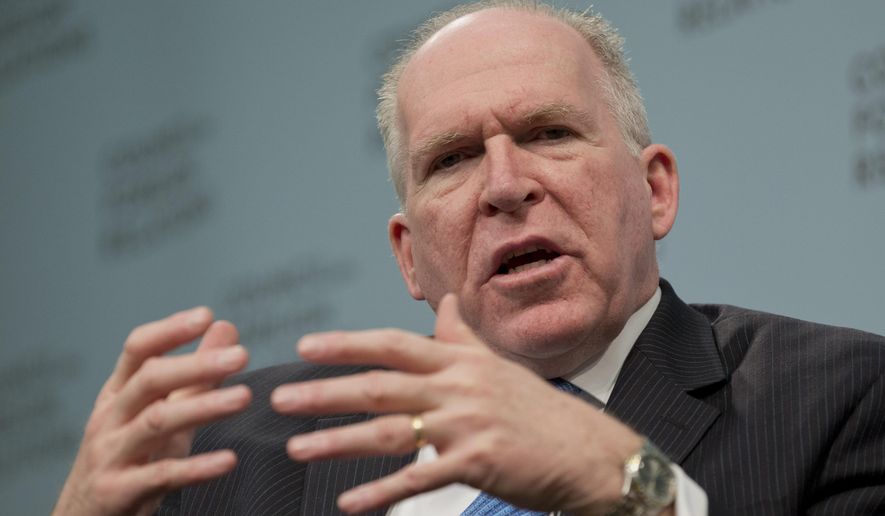The White House is facing questions about whether it underestimated the threat from Islamic State militants in Iraq after the surfacing of a 2011 speech by John O. Brennan, then President Obama’s counterterrorism chief and now CIA director, who dismissed the danger of an Islamic caliphate as “absurd.”
“Our strategy is … shaped by a deeper understanding of al Qaeda’s goals, strategy and tactics,” Mr. Brennan said on June 29, 2011. “I’m not talking about al Qaeda’s grandiose vision of global domination through a violent Islamic caliphate. That vision is absurd, and we are not going to organize our counterterrorism policies against a feckless delusion that is never going to happen. We are not going to elevate these thugs and their murderous aspirations into something larger than they are.”
Two years later, the Islamic State declared a caliphate in a territory covering northern Syria and northwestern Iraq. Although the militants don’t meet Mr. Brennan’s definition of “global domination,” they are enough of a threat to Iraq and the West that Mr. Obama last week ordered airstrikes and a humanitarian mission to blunt the group’s swift progress.
Mr. Brennan’s dismissive remarks were similar to what Mr. Obama told The New Yorker magazine in a January interview in which the president described Islamic State fighters as amateurs.
“The analogy we use around here sometimes, and I think is accurate, is if a JV team puts on Lakers uniforms, that doesn’t make them Kobe Bryant,” Mr. Obama said.
The president sounded a different note Saturday, saying the militants posed a real threat to Iraq and worried that they “might potentially launch attacks outside the region against Western targets and U.S. targets.”
Republican lawmakers have accused the White House of long ignoring the threat from the Islamic State. Former Vice President Dick Cheney said Mr. Obama either isn’t reading his top-secret daily intelligence reports or is getting bad intelligence.
“To suggest that this is a JV, they’ve gone much further than al Qaeda had,” Mr. Cheney said Tuesday on the Hugh Hewitt radio show. “To suggest that these guys are just involved in local conflicts, I can’t believe he’s listening to the briefings that I would expect he’s received from the intelligence community, and could come out with a statement like that.”
The White House said Wednesday that it stands behind Mr. Brennan’s evaluation.
“John Brennan’s analysis has stood — and will continue to stand — the test of time,” said National Security Council spokesman Ned Price. “While [the Islamic State] has made tactical gains in Iraq in recent weeks, al Qaeda’s aspirations for global domination remain delusional.”
Mr. Obama has, however, expressed dissatisfaction with the quality of intelligence on the Islamic State militants.
“Did we underestimate ISIL?” Mr. Obama said last week. “I think that there is no doubt that their advance, their movement over the last several months has been more rapid than the intelligence estimates and I think the expectations of policymakers both in and outside of Iraq.”
There is also debate about how powerful or influential the Islamic State will prove to be. Asma Afsaruddin, professor of Islamic studies and chair of the Department of Near Eastern Languages and Cultures at Indiana University, said Islamic State leader Abu Bakr al-Baghdadi cannot be considered a “caliph” or commander of the faithful.
“Most Muslims have received al-Baghdadi’s proclamation — when they are aware of it — with supreme apathy,” she said. “This should come as no surprise. Al-Baghdadi can keep touting himself as the new caliph, but most Muslims know enough history to recognize him for what he is — a murderous tyrant using religion as a cheap armor to acquire rank political power.”
• Dave Boyer can be reached at dboyer@washingtontimes.com.




Please read our comment policy before commenting.